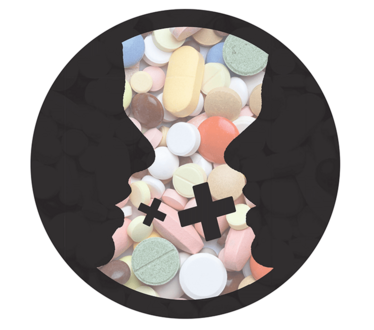Breaking Bad Language
Can certain buzzwords really sway public perceptions of a new drug?

Don’t call it a breakthrough unless it really is, say US researchers. Lisa Schwartz and Steven Woloshin, from the Dartmouth Institute, and Tamar Krishnamurtia and Baruch Fischhoff from Carnegie Mellon University are concerned that labeling a new medication as a “breakthrough” drug might lead to an exaggerated belief of how well it actually works. The FDA’s ‘Breakthrough Therapy’ designation is an expedited regulatory pathway that was introduced in 2012 to accelerate the development and review of drugs that tick certain boxes; for example, those that treat serious or life-threatening conditions or demonstrate a substantial improvement over available therapies.
“FDA press releases and media reports often refer to these as ‘breakthrough drugs,’ which implies a major advance. However, the designation is often awarded based on very preliminary evidence, including data from uncontrolled studies,” says Woloshin. “Terms like ‘breakthrough’ or ‘promising’ are extremely powerful marketing terms, so we think it would be in the public’s interest to instead present the cold hard facts about new drugs (for example, what outcomes are affected by the drug and the size of the effect) without using such descriptive language.”
Participants involved in an online study were randomly given one of five short descriptions based on an FDA press release for a hypothetical recently approved metastatic lung cancer breakthrough-designated drug (1). One version, a facts-only description, described the drug as meeting the breakthrough criteria, but did not actually use the term “breakthrough.” The second and a third description included the words “breakthrough” and “promising,” respectively, while a tentative explanation used FDA-required language about accelerated approval drugs for professional labeling. A final description, classified as ‘definitive’, changed “maybe be contingent” to “is contingent.” The participants were then asked to judge the drug’s benefit, harm and strength of evidence.
The researchers identified a clear trend, which they call the “breakthrough effect”. Compared with a facts-only description, adding the term “breakthrough” increased the percentage of participants who rated the drug as “very” or “completely” effective (from 11 percent to 25 percent), as well as the percentage believing that the evidence supporting the drug was “strong” or “extremely strong” (from 43 percent to 63 percent).
“The ‘breakthrough effect’ was lessened by explaining the regulatory meaning of accelerated approval (as required in the professional label). Our findings also highlight the importance of communicating the extra uncertainties inherent in drug approval based on preliminary evidence, for example with accelerated approval,” adds Woloshin.
Woloshin is keen to stress how this persuasive language should be taken into account by the general media and industry when considering public perception of new drugs. He says, “By using neutral terms, quantifying drug benefits and side effects, and highlighting uncertainties, we can empower consumers to make more informed and accurate judgments about drugs.”
- T. Krishnamurti et al., “A randomized trial testing US Food and Drug Administration ‘breakthrough’ language”, JAMA Intern Med. 1;175(11), 1856-1858 (2015).



















